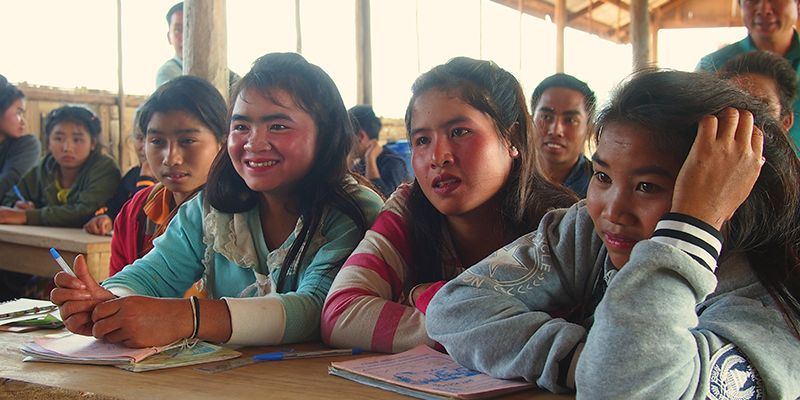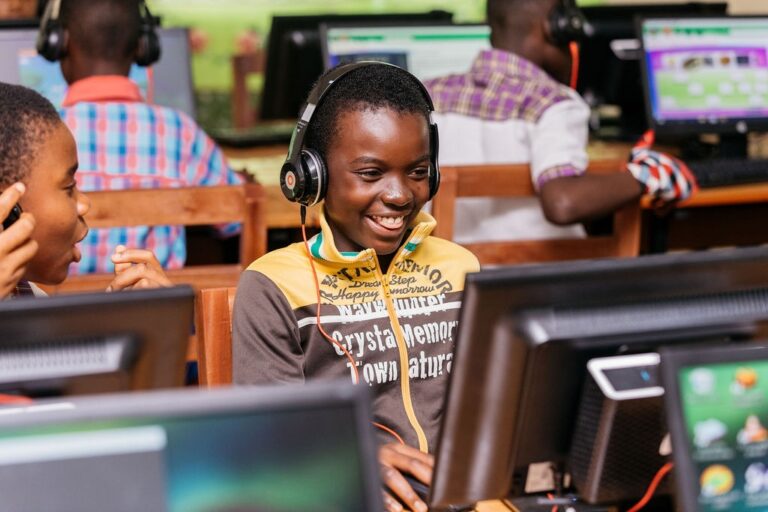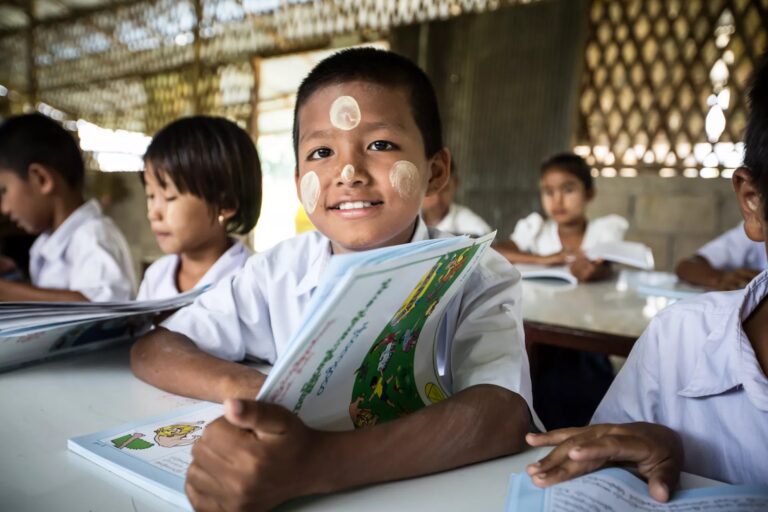Story Source: UNESCO ~ Go to Original Article
A four-hour drive from Luang Prabang, following an unpaved, twisting mountain track, is Xaysathan district in Lao PDR’s Sayaburi province, a beautiful mountain area on the border with Thailand.
One village in the district, Baan Sathan, hosts less than 200 people from the ethnic minority Khum people.
There is one elementary school but no secondary school, with most people, including children, working in agriculture for their living. Some children cannot go to school or drop out because their parents do not allow them to study – they are an important source of labour for the family.
For out-of-school children and youth, a non-formal education primary equivalency programme (NFE-PEP) was started two years ago as an evening course using the formal primary school facility at this village. At present, 16 students from 14 to 18 years old are studying. With technical support from UNESCO Bangkok, there are more than 6,000 disadvantaged learners who have joined NFE-PEP across the country.
The day begins at 5am in the morning. Out-of-school children and youth do household work and take care of their brothers and sisters who are enrolled in formal schooling. After the morning work, they walk into the fields on the mountain and work the farms including tending rice and vegetables throughout the day, taking short breaks. Work is finished and the families return home at about 5pm or 6pm.
For the out-of-school children and youth, however, it is time to start learning in the NFE-PEP, studying with friends who lead similar lives. Classes run from 6pm to 8pm covering several subjects including basic reading and writing in Lao, taught by a volunteer teacher using materials from the formal education system.

Many of these learners are quite proud that they are helping their siblings to attend the regular classes. ‘I’m proud of taking care of my young brothers and sisters to go to their school, I don’t think I want to go to regular classes,’ one girl said.
Ms Phissamay Philany, the Assistant Director-General of the Department of Non-Formal Education in Ministry of Education and Sport, said one of the challenges for Lao children was that they could not envision their futures. ‘It is difficult for them to explain what they want to be and what they want to do,’ she said.
At first the learners are reticent to express their interests and aspirations, but as they warm up to the subject, they begin to share their future plans, from making fertilizer and food processing to opening a beauty salon. In addition to basic literacy, NFE-PEP provides the educational materials and opportunities to help to meet the needs of children and youth as well as their families and community.
UNESCO Bangkok remains committed to such flexible learning strategies that are the key for disadvantaged learners’ education. Utilization of ICT might be another opportunity – while Baan Sathan is small village in the deep mountains, there is good mobile network and learners have mobile phones at home. Flexible education in non-formal educations has the potential to change these children and young people’s lives and expand their futures to the benefit of society around them.
Photo credit: ©UNESCO/Erika Atarashi



![[Preliminary Report] CRNA Collaborative Research for Exploring Factors Nurturing"Happy and Resilient" Children among Asian Countries](https://equity-ed.net/wp-content/uploads/2024/09/1725672182698.jpg)


